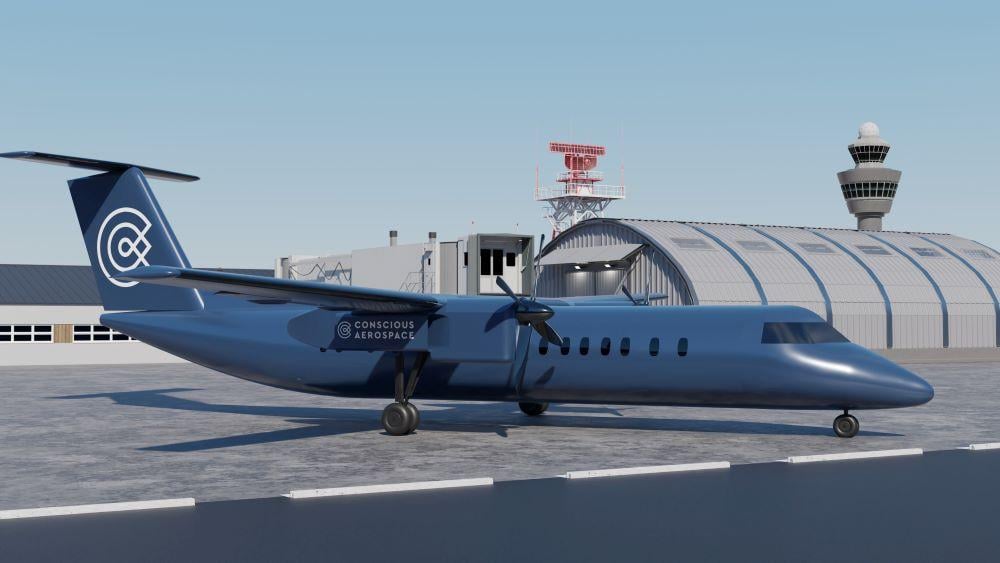
A Dutch consortium plans to develop a liquid-hydrogen, fuel-cell powertrain for retrofit to the De Havilland Canada Dash-300.
Credit: Conscious Aerospace
Dutch startup Conscious Aerospace says it has received confirmation from the Netherlands’ government that its planned development of a hydrogen-electric propulsion system for regional aircraft will receive €73 million ($83.8 million) in funding from the country’s National Growth Fund. The Hydrogen...
Subscription Required
Government Funding Confirmed For Dutch Hydrogen-Electric Powertrain is published in Advanced Air Mobility Report, an Aviation Week Intelligence Network (AWIN) Market Briefing and is included with your AWIN Premium membership.
Already a member of AWIN or subscribe to Advanced Air Mobility through your company? Login with your existing email and password
Not a member? Learn how to access the market intelligence and data you need to stay abreast of what's happening in the air transport community.





